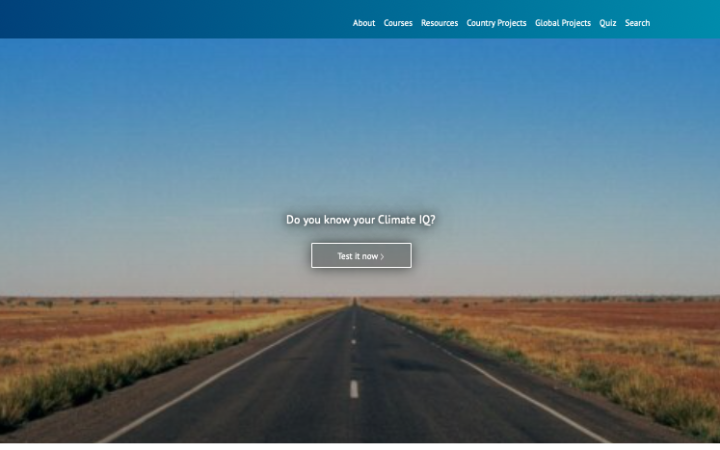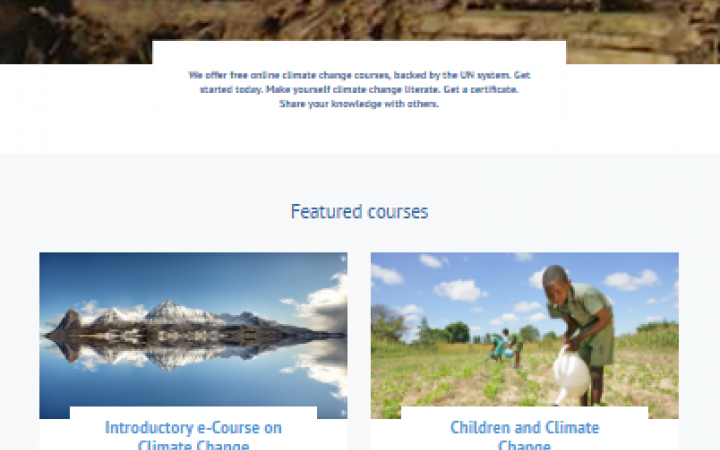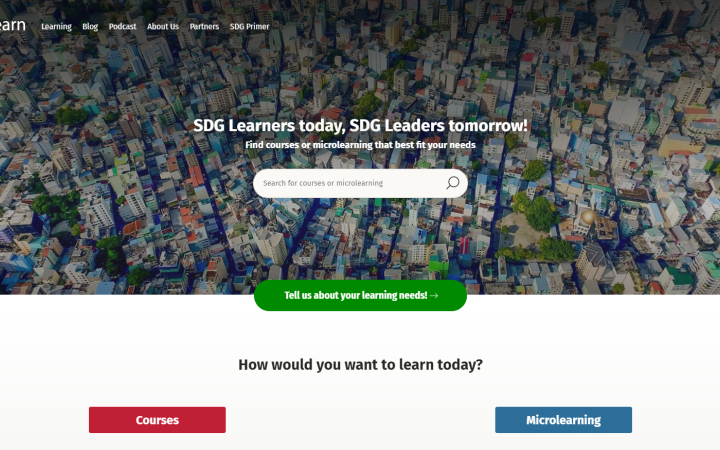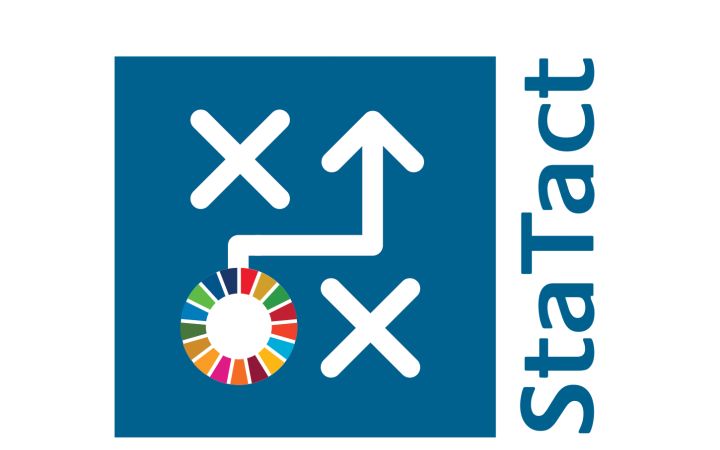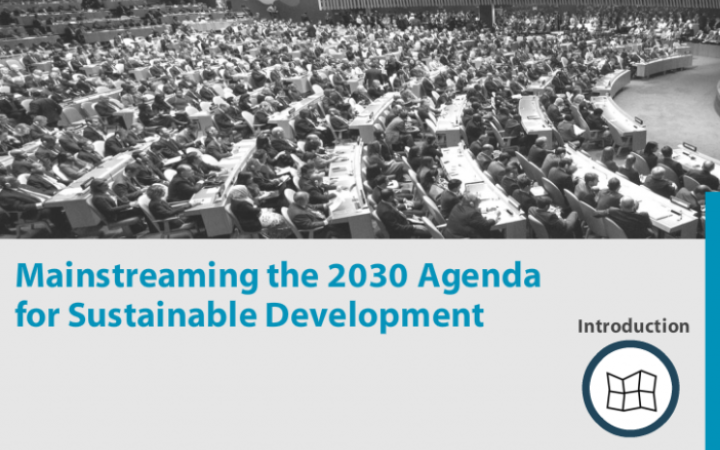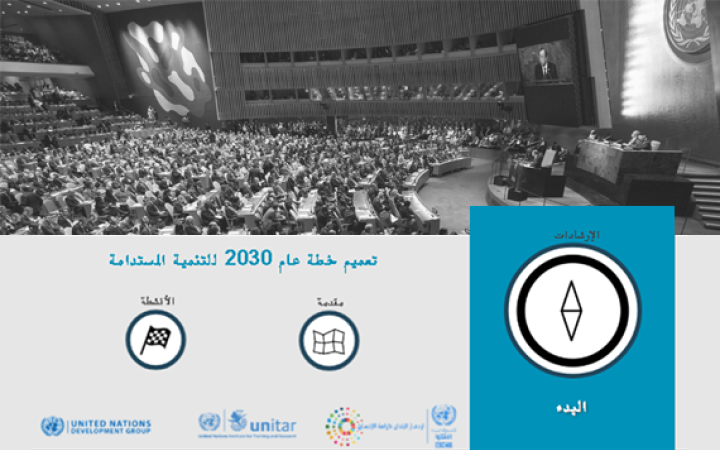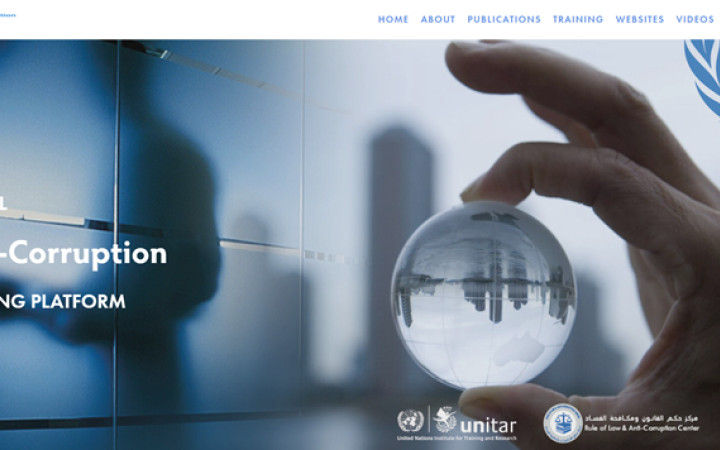We offer various online platforms that provide users with tools, resources and courses in respective thematic areas. Explore below our learning platforms.
Digital Government Academy
The UN CC:Learn knowledge sharing platform
The UN CC:Learn knowledge sharing platform is a ‘one-stop-shop’ to access learning materials, activities and services offered by UN organizations on climate change.
It includes a searchable library with over 3,000 entries; a calendar including events with a learning or training component; news articles featuring the latest developments and services in climate change learning; national and global projects and additional resources, such as, videos, links to other platforms, and much more. This platform is available in English, Spanish and French
UN CC:eLearn platform
We offer free online climate change courses, backed by the UN system. Get started today. Make yourself climate change literate. Get a certificate. Share your knowledge with others.
UN SDG:Learn
Through the collaborative efforts of the United Nations, multilateral organizations, and sustainable development partners from universities, civil society, academia and the private sector, UN SDG:Learn provides a unique gateway that empowers individuals and organizations through an informed decision when selecting among a wealth of SDG-related learning products and services that are currently available. The Platform represents a gateway to the wealth of learning solutions of all partners, allowing finding the most suitable SDG learning solution – in one go and place.
StaTact
UNITAR in partnership with UN Statistics Division (UNSD) developed a problem-solving toolkit “StaTact” in support of monitoring the Sustainable Development Goals with donor support received by UNITAR. StaTact is a web-based tool developed to support short-term statistical planning in the context of monitoring the SDGs. As the name suggests, it provides a tactical approach to addressing selected SDG-related data gaps that require urgent action. Its main strengths are a collaborative environment for multi-stakeholder discussion and a problem-solving methodology that helps you set up a Working Group and take it through three key stages such as a problem statement, problem analysis, action plan, and an implementation interface. The analysis stage uses the Generic Statistical Business Process Model (GSBPM) to analyse the processes of data production and the Generic Activity Model for Statistical Organizations (GAMSO) to map the institutional arrangements that govern these processes. The end product is a realistic low-cost tactic action plan with assigned responsibilities, a timeline, and a budget. The implementation interface enables the Working Group to track in real-time progress on this plan.
StaTact is typically coordinated by appointed focal points or national administrators from National Statistical Offices who can create Working Groups upon the request of members of National Statistical Systems or Government in general. Working Group members are invited by Group Leaders and can be from the Government or outside as relevant for a specific data problem at hand.
Mainstreaming the 2030 Agenda for Sustainable Development
The e-tutorial provides in-depth and wide-ranging guidance on how to mainstream the 2030 Agenda for Sustainable Development into each national strategy and policy. It is based on the UN Development Group’s (UNDG) Reference Guide "Mainstreaming the 2030 Agenda for Sustainable Development". Case studies introduce innovative examples of how some countries have begun to develop and use relevant tools, and activities offer an opportunity to gain a better understanding and useful skills. Although this training tool has been primarily designed for government officials and development practitioners, it is also publicly available.
It is available in English and Arabic. The Arabic version of the e-tutorial was translated and implemented by the United Nations Economic and Social Commission for Western Asia.
Free courses at Educate All
Want to take free courses or make your own? You can access a whole library of free online courses on Educate All! Educate All was set up in 2020 with microlearning platform EdApp to democratize and increase access to high-quality adult education that addresses the Sustainable Development Goals.
Anyone can take these courses on a smartphone. Learners with limited internet access can also download the content to access them offline.
Check out courses you can take for free or set up an account to create course content of your own: https://www.unitar.org/sustainable-development-goals/prosperity/our-portfolio/learn-anywhere-anytime
Click4it wiki
The Click4it wiki is a knowledge base repository of training definitions, methods, tools, resources and tool kits. As a dynamic channel for collaboration and knowledge sharing the wiki should continuously grow and expand to include additional content generated by internal and external contributors.
Currently the Click4it holds over 500 entries on methods and tools, among which a number of downloadable and ready-to-use materials such as toolkits, checklists and step-by-step instructions.
Global Anti-Corruption Training Platform
The Rule of Law and Anti-Corruption Center, ROLACC, and the United Nations Institute for Training and Research, UNITAR, have joined efforts to develop different tools for strengthening capacities in the fight against corruption. In this framework, the online Global Anticorruption Training Platform is envisaged as a contribution to better understand corruption and its linkages to different topics, as well as its causes, effects, and ways to combat it. By mainstreaming knowledge about this worldwide challenge, it is possible to raising awareness, empowering people, and fostering positive mindsets for transforming lives. Digital tools, such as this platform, play an instrumental role in combating corruption due to a wide range of benefits, challenges, and needs caused by development dynamics. It gathers and make visible existing publications, plus information on courses, relevant quotes, curious facts, related events, videos, news, and other websites of interest. This platform is available to all visitors without restrictions. Read the fact-sheet on the Global Anti-Corruption Training Platform.
Chemicals and Waste Platform
The purpose of this platform is to assist countries in the ratification and implementation of Basel, Rotterdam, Stockholm and Minamata Conventions in a synergetic and efficient way.
Mercury Platform
The mercury platform provides up-to-date information on activities conducted under the mercury portfolio of UNITAR. This platform has been developed with financial support from the European Commission and Switzerland, and in partnership with UNEP. This platform is free to access for all countries and stakeholders.
PRTR Platform
Pollutant Release and Transfer Registers (PRTRs) are systems that provide you with information on toxic substances emitted every year into air, water or land. PRTRs show on interactive maps the different sources of pollution, such as industries (point sources), agriculture and transportation (non-point sources). PRTRs provide users with free access to information on environmental emissions, enhancing transparency and accountability of industry by providing geographic locations of facilities that release pollutants. PRTRs represent an incentive for finding innovative solutions that can reduce pollution and lead to sustainable increase in productivity, facilitate compliance with environmental standards and international agreements, and create a regular reporting of national data on emissions into the environment and transfers of hazardous waste.
Strategic Approach to International Chemicals Management (SAICM)
Since 2007, UNITAR has served as the international executing agency for more than 70 projects supported by the SAICM Quick Start Programme Trust Fund (QSPTF), coordinating more than USD 13 million in funding. A video outlining UNITAR’s support to the QSPTF can be viewed here UNITAR Support to the SAICM QSPTF.
To support national SAICM implementation, the SAICM Secretariat and UNITAR, in collaboration with the IOMC, developed Guidance for Developing SAICM Implementation Plans.
National Profile Homepage
National Profiles to Access Infrastructure and Capacity Needs for Chemicals Management
E-Tutorial on Global Framework for Climate Services
This free-of-charge tutorial has been designed together with GFCS Office with the aim of promoting GFCS, raising awareness about its objectives and illustrating the benefits of climate services for decision making in selected topical areas. This learning tool is meant for national experts as well as other interested stakeholders and the general public, The tutorial is available at this page for an initial period of 6 months, during which all modules may be accessed in any preferred order. The modules feature video interviews with experts from international agencies, as well as short self-assessment exercises to test your knowledge throughout the tutorial.



